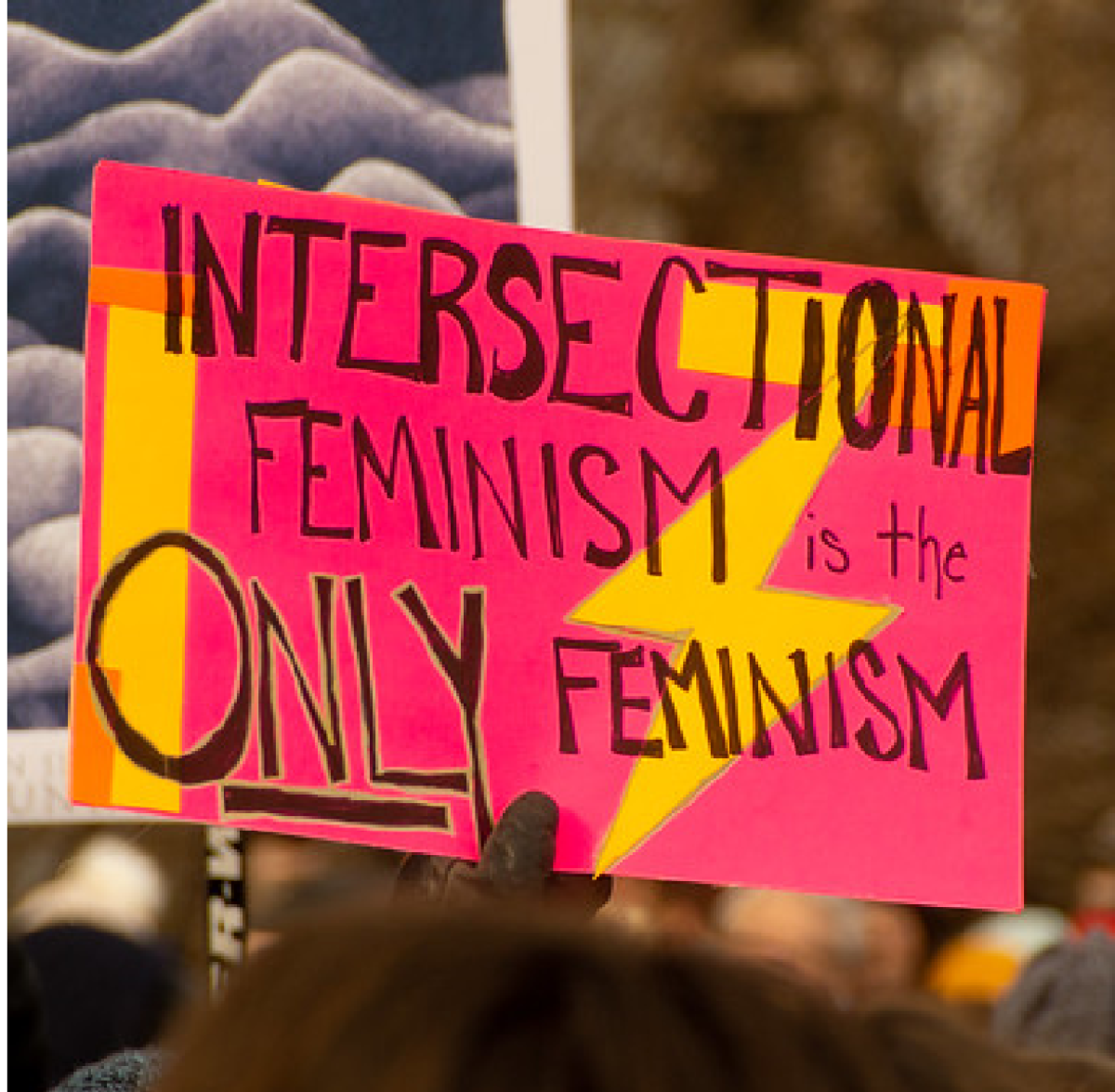Intersectional Feminism: Don’t touch my hair

For as long as I can remember, I’ve known I was a girl. Most of my friends were girls; we shared a mutual alliance that came in handy when we were banned from boys football. But I learned I was black. And, even more recently, that I was a black woman.
This idea challenged my understanding of feminism as a ubiquitous fight for the collective female experience. Often, we’re ready to label someone as racist or defend a victim of gender-related discrimination, but sometimes we don’t acknowledge that the cause of both of these prejudices is mutual. In other words, they are intersectional.
Intersectionality recognises identity as multifaceted; it consists of categories like race, gender, class and sexuality. Rather than taking each category individually, it introduces the notion of multiple marginalisations occurring simultaneously and identifies the nuanced experience belonging at each intersection. This opens up an inclusive dialogue within movements such as feminism, that may otherwise be neglected. For the first time, I could address the social reality that my gender and race afforded me as a black woman, instead of the binaries of being black or a woman standing as separate entities.
One of the ways I came to learn I was a black woman was through the repeated microaggressions I would face on an almost daily basis. Microaggressions are where the prejudices people hold seep into everyday language and interactions, making you feel ‘othered’. The confidence people possess when they touch my hair is one of the many subtle indignities I have to face regularly. Solange wrote a whole song about it, ‘Don’t Touch My Hair’, drawing on the feeling of exoticisation, and rejecting the idea of beauty being synonymous with Eurocentrism. In that seemingly innocent act of curiosity, I’m made to feel alienated.
Popular culture celebrates features that fit the Western ideal for beauty, like my ‘white’ nose or (only recently trending) Kylie Jenner lips. It took a white female to popularise the big lips that black women had previously been demonised and mocked for. We need to recognise beauty outside of this narrow Western perspective to allow girls of all races to feel beautiful.
To say you’re not attracted to ‘X’ girls, or ‘only move to lighties’ perpetuates this Eurocentric standard of beauty; it’s colourism. It refers to the preferential treatment of someone with lighter toned skin, typically in the same racial group. It’s so ingrained in our society, particularly affecting darker toned females. Beyoncé released a song ‘Brown Skin Girl’, celebrating the beauty of black women, yet it was met with complaints about not being inclusive. These responses merely highlight the necessity of such a song, as it is a privilege that gives people the ability to disregard the fact that many songs already exist that celebrate their beauty.
Black History Month may be over, but these issues prevail. In a predominantly white space, we share a common responsibility for educating ourselves on the privileges we may hold, and how this can affect how we are treated or treat others.
Feminism needs to be intersectional in order to be feminist, as this all encompassing experience is not the reality for all women.







